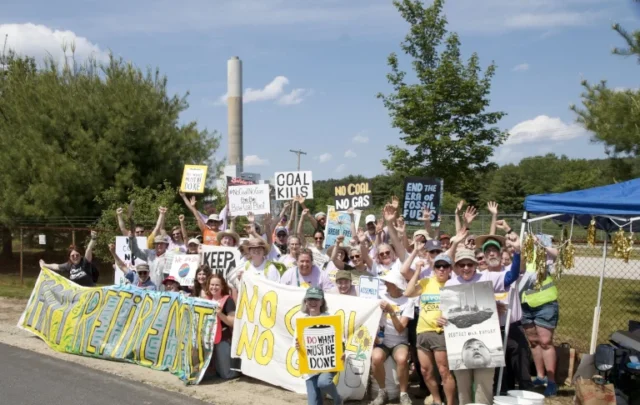“Climate Scientist” Patrick Brown recently published a piece circulated in Bari Weiss’s ‘The Free Press,’ entitled: ‘I Left Out the Full Truth to Get my Climate Change Paper Published.’ This title should warn readers that they are about to be submerged in the obsequious tropes of energy industry propaganda. Weiss also distributed an opinion piece by Great Barrington Declaration author, immunologist Jay Bhattacharya – platforming academic prostitutes seems to be Bari Weiss’s current passion.
A small minority of credentialed experts have, in time honored fashion, always been willing to exchange their reputations for the spoils that corporate strategists and libertarian think tanks are eager to pay. Jerome Nriago coined the phrase “cascading uncertainty rule” to describe the narrative methods developed by Robert Kehoe, a chemist who argued a century ago on behalf of General Motors that leaded gasoline posed no health threat to the public. Nraigo’s term conveys, quite simply, that scientists working on behalf of oil, tobacco, industrial agriculture, or other toxic industries can enable corporations to continue with murderous practices as long as they succeed in sowing sufficient public doubt about the harms that these industries inflict. Corporations have mastered the art of disabling public scrutiny via the deployment of unscrupulous scholars.
Of course, we now know that Robert Kehoe was wrong and that tens of millions of premature deaths and a pandemic of brain damage (particularly devastating to urban children) comprised the collateral damage accompanying lead-laced oil profits. Patrick Brown is following faithfully in Kehoe’s tradition, but the cascading uncertainty rule no longer depends upon scientific “scholars” pushing pure denial. Academic apologists for energy profiteers can concoct highly sophisticated ways to both “acknowledge the science” and quell public anxiety. Brown does not deny anthropogenic climate change, he merely argues that capitalist “resilience,” is more than a match for warming, and sets about earnestly to cherry-pick a couple of out of context graphs and charts to buttress a rather indefensible position..
Brown published a paper (on climate change and increased forest fires) in the prestigious Nature online journal and subsequently boasted that he did so by conforming to narrative strictures regarding climate change that, so he claims, sabotage full and objective research. He offered nothing to indicate that editors pressured him to change or tailor his work, but, rather, explained that all researchers understand, via some form of collective osmosis, that only “alarmist” research gets published. He expects, for good reason, that Bari Weiss’s readership – many of whom have been gnawing on Heartland Institute confections for years – will accept this on faith. I suspect that Brown’s Nature piece was planned as a Trojan Horse operation, carefully designed to theatrically enhance one of climate denialism’s favorite storylines – that climate change narratives are shaped by the corrupt interests of academia.
Brown makes two particular claims – the first is drawn from the tired repertoire of libertarian think tank bromides – that academic journals boost exaggerated climate fears as a matter of pandering to anti-capitalist ideology. And the second is a pure strawman – that “mainstream” publications (those not funded by The Koch Foundation, the meat industry or the nuclear power industry) have little interest in exploring other contributors to environmental disasters, such as discarded cigarette butts or arson.
Brown claims that human carelessness or arson is involved in 80% of forest fires, but citing individual acts of indiscretion is a typical distraction from corporate crimes – not unlike blaming mental illness for gun violence, or attributing plastic waste to lazy recyclers. And, as Mark Gongloff wrote in a Washington Post piece, Nature commonly publishes pieces that focus on a full range of environmental problems apart from climate. As an objective, self proclaimed independent practitioner of open inquiry, Brown is oddly searching for strawmen.
Recent press coverage on the devastating Libyan floods detailed that worn out dams and inadequate warning systems contributed to the deaths of 20,000 estimated victims. The notion that media covers climate disasters to the exclusion of other contributing factors can be debunked with even a casual survey of press reports. Brown’s stick figure caricature of science journals and media climate coverage is gratuitous nonsense aimed to diminish public comprehension of climate in the interest of corporate narratives. He knows full well that whether a particular forest fires is lit by a careless cigarette, a bolt of lightening or a drunken camp fire, the aggregate sum of burnt acreage points unrelentingly to climate. His piece in Nature, that he nearly disavows, says as much.
Patrick Brown has long been associated with Michael Shellenberger and Ted Nordhaus’s “Breakthrough Institute,” a think tank promoting “ecomodernism.” Shellenberger is a lobbyist for the nuclear energy industry and ecomodernism espouses a belief that capitalist markets have, and will continue to resolve environmental issues without downsizing growth, profits and consumerism. In short, he preaches about the virtues of dispassionate, scientific objectivity while hauling an enormous agenda on his back.
Here is Brown’s gambit in its most transparent form:
“For example, in another recent influential Nature paper, scientists calculated that the two largest climate change impacts on society are deaths related to extreme heat and damage to agriculture. However, the authors never mention that climate change is not the dominant driver for either one of these impacts: heat-related deaths have been declining, and crop yields have been increasing for decades despite climate change. To acknowledge this would imply that the world has succeeded in some areas despite climate change—which, the thinking goes, would undermine the motivation for emissions reductions.”
The study referenced above, a dense, technical piece aiming to quantify the monetary costs of climate change, becomes, for Brown, a Rorschach inkblot upon which he can project the talking points of ecomodernism. These points are unvarying, predictable and simplistic – capitalism has created a path forward, ecomodernists argue, from a former world of poverty, inadequate infrastructure and starvation. Today, Brown asserts, people around the globe live longer, suffer fewer catastrophes, and no longer are vulnerable to large scale famine. This era of human triumph has allegedly run parallel to climate change, and yet we continue to see the trajectory of progress continue in a steep ascent. This is a narrative that is not so much false as denuded of critical context.
Brown, like his employers – Shellenberger and Nordhaus – projects the misappropriated optimism of an old time faith healer. In this safe new world there is no mention of some 20 million COVID fatalities, nor do we hear a word about ocean acidification, species extinction or deep ocean structures made out of discarded plastic.
The piece that Brown created for Bari Weiss argues that deaths from extreme heat have been dropping for decades and global food production has risen for these same decades. That’s it. There is nothing about dying fish species, plummeting bird populations, anoxic and euxenic ocean areas, bleached choral reefs, the predicted shut down of the AMOC, the collapse of Greenland’s ice sheet, the melting layers of permafrost, or the utterly horrifying statistic that only 4% of the world’s animal biomass is comprised of wild creatures. Nothing outside of the comfort and well being of the human species can wrench even a moment of contemplation from Brown’s myopic vision.
Even Brown’s minimalist focus on cherry picked statistics is shaky. He argues that fewer people die of extreme heat now than in past decades. Really? Research has suggested that deaths from heat exposure are grossly undercounted and when the target moves to the task of analyzing the relationship of rising temperatures to all cause mortality, the problems multiply accordingly. There are simply no bureaucratic structures in place to precisely determine and record the role that heat plays within the complex matrix of preexisting medical conditions. Furthermore, researchers now have linked extreme heat to depression, rising suicide rates, general decline in mental health and spiking incidents of violence, domestic abuse and trauma. Trauma has been implicated in physical ailments including diabetes and heart disease. Brown is fond of repeating, like the more florid deniers at The Heartland Institute, that more people die of cold than heat. So what? Can climate change be best understood by distilling everything into a death match between hot and cold?
Brown is on even shakier ground as a cheerleader for industrial agriculture. He prances about in “gotchya” fashion, proclaiming the rise of global food production . But he is mendaciously displaying gross charts depicting world wide trends. Crop failure and food insecurity are local events, often centered in poor, tropical areas that are offset by useless overproduction and dumped surplus in wealthy areas. Brown does not weigh in about climate refugees and the push back of anti-immigrant fascist movements, nor does he mention a 35% reduction in fish populations that has posed huge risks to coastal Asian communities. We hear nothing from him about the cataclysmic flood damage to India’s rice crop that endangers the three billion people dependent on Indian rice exports. India, that provides 40% of global rice exports, now has a moratorium on most rice exports for this year.
Michael Shellenberger has been a huge shill for industrial farmed meat, so we should not be surprised that Brown’s piece made no mention that meat production is a primary driver of greenhouse gasses and the largest contributor to toxic water pollution. He certainly does not bring up that agricultural yields are driven by toxic pesticides that nearly compete with climate as an existential threat to long term survival.
People who read the piece that Bari Weiss sent far and wide have no idea about the corporate forces that Patrick Brown represents. He is doing industry damage control by revising the climate denialist narrative so that it appears to rest within the borders of legitimate science. It does not. Patrick Brown and the Breakthrough Institute are underwritten by oil money, meat interests and nuclear industry cash. Brown labors, ultimately, on behalf of the cascading uncertainty rule – the corporate conspiracy to elicit popular trust. Psychopaths are known to smooth talk their victims before killing them.





